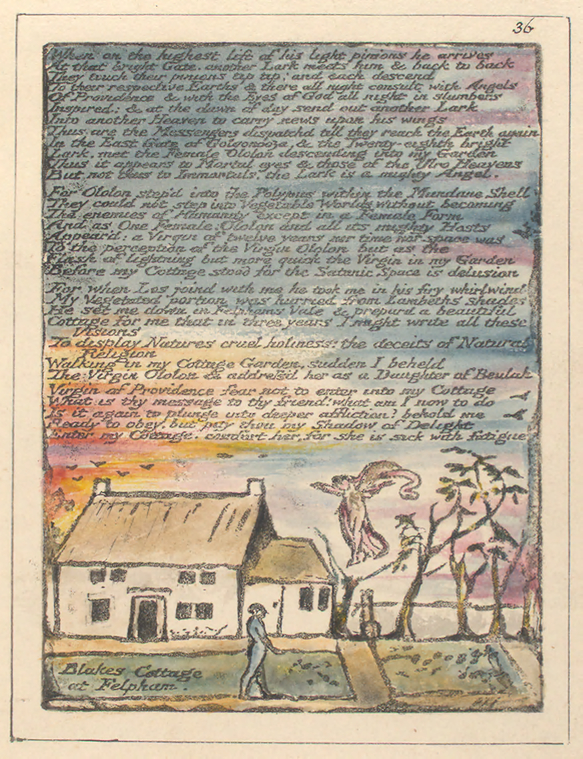 |
New York Public Library Milton Plate 36 |
First posted by Larry in Nov 2009
Inspired primarily by Blake's Sublime Allegory (Roger
Easson, p. 313) :
In 1800, when he was 33, Blake went to Felpham (on the
sea) under the sponsorship of a wealthy man who pretended
an interest in his welfare (Blake was well nigh starving
about that time).
In his Preface to Jerusalem he spoke of returning from the
sea. He was disillusioned because he had hoped for a
spiritual friend, but found a corporeal one.
"Corporeal Friends are Spiritual Enemies" (in Milton,
4.26; E98 and again in Jerusalem, 44.10; E193)
Blake was disillusioned with the public; they had failed
to show him any interest or respect.
Easson tells us that in Jerusalem the disillusioned poet
attempted to promote a dialogue with his readers (that's
us). With a typical prophetic attitude he expected a
response-- . Prophets don't say things to please their
listeners but to arouse them, provoke them, above all
awaken them. Like Ezekiel Blake had "the desire of
raising other men to a perception of the Infinite"
(MHH13; Erdman 39).
In Jerusalem Blake is deliberately illusive (every Plate
might be thought of as a detective story or a crossword
puzzle). He means us to read it-- and consider! Like his
Vision of Christ in The Everlasting Gospel "he spoke in
parables to the blind".
Blake had been well received by a (very!) few from whom
their "love and friendship" was the highest reward. In
the preface he asks for our love and friendship; it can
only be reached through "the severe contentions of [true!]
friendship."
Blake took the freedom to contend with us, and whether or
to what degree we can respond creatively depends upon us.
Has anyone ever fully understood Blake? Ah! that's the
challenge.

No comments:
Post a Comment